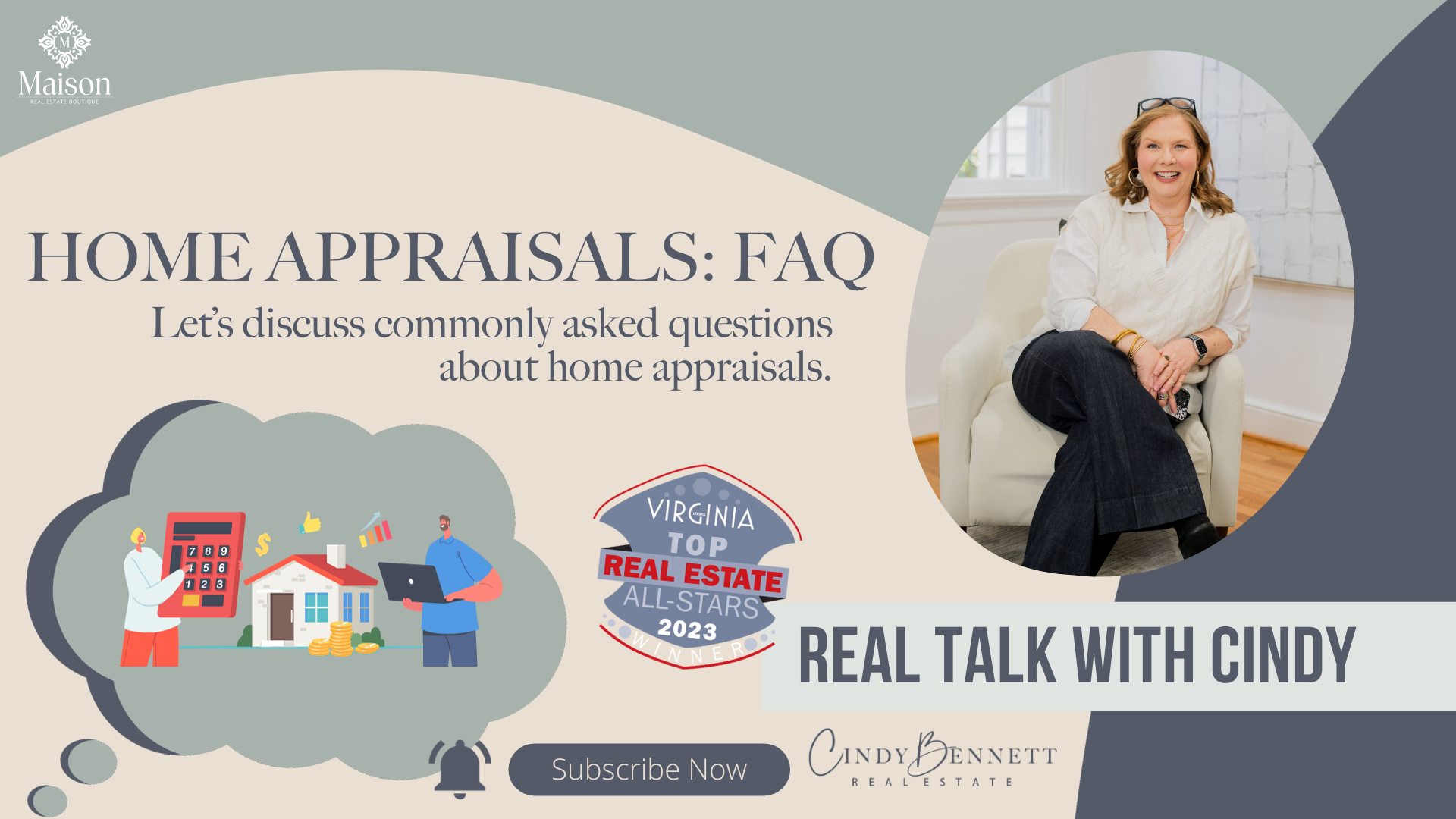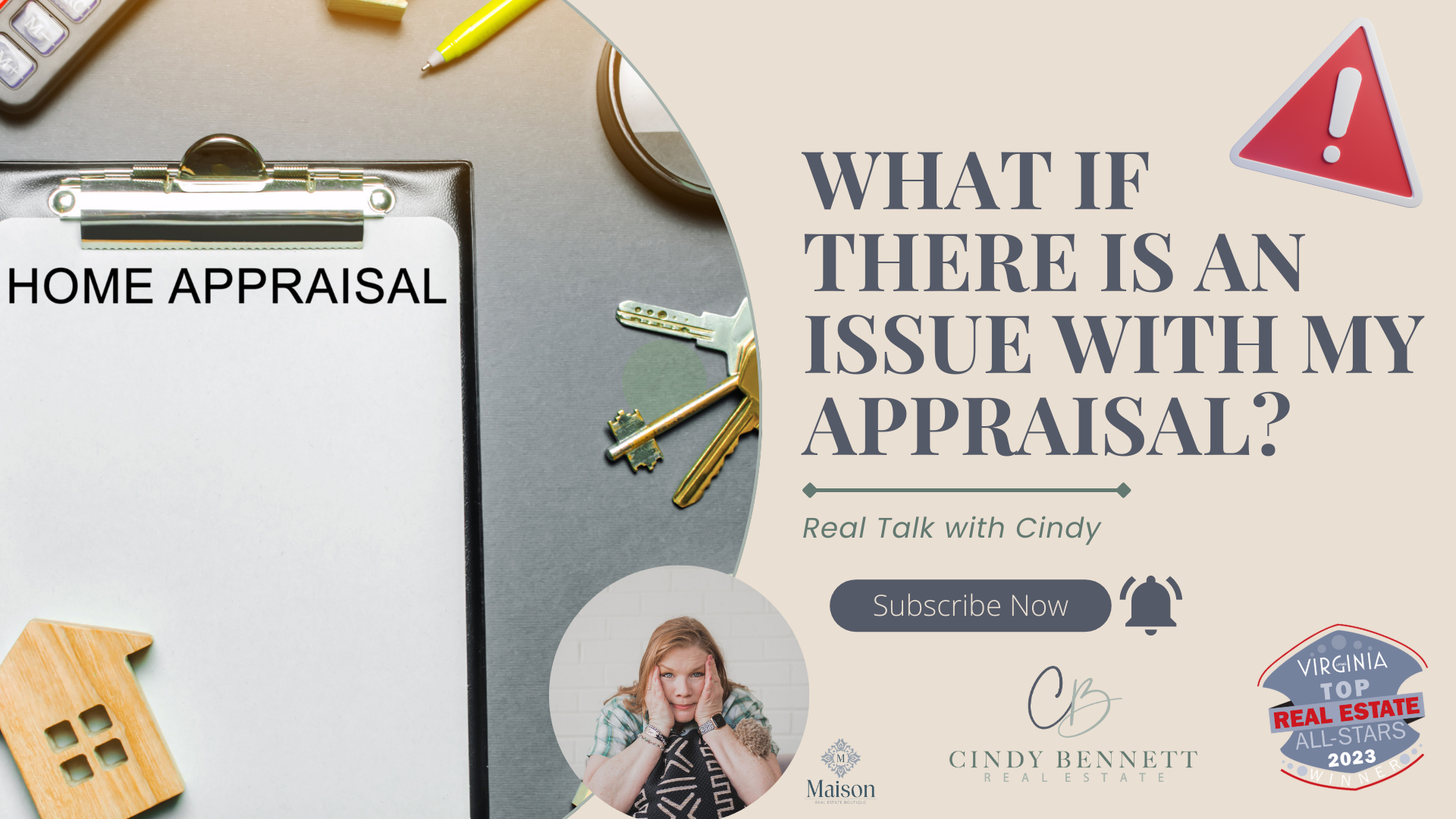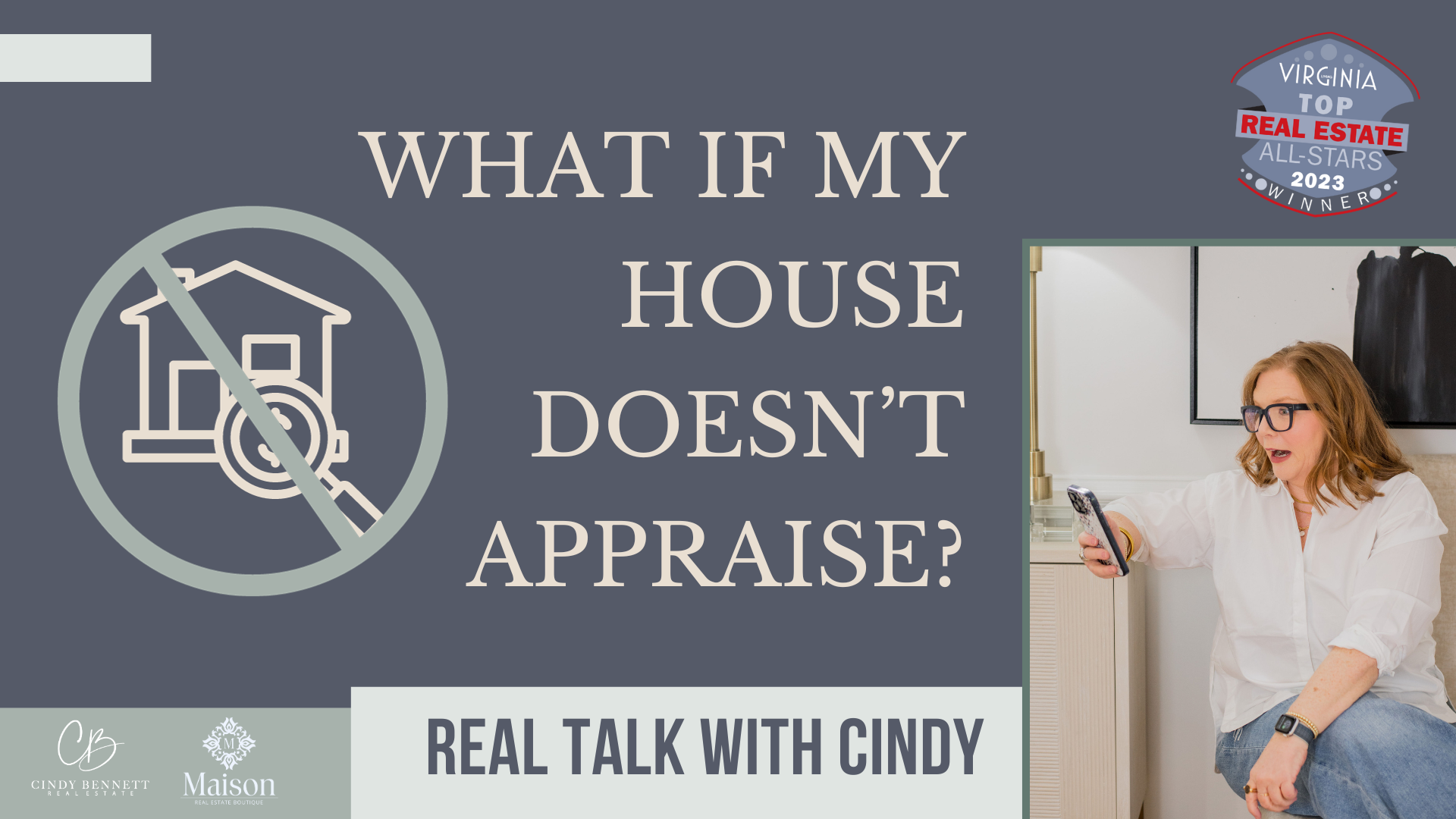Real Talk with Cindy
Keep on top with latest and exclusive updates from our blog on the Los Angeles real estate world. Cindy Bennett Real Estate posts about tips and trends for buyers, sellers, and investors every week. Whether it be about staging your property or a snapshot of the market, this is your one stop shop.

We talk a lot about things that you want to make sure you take away, if you don't want the buyers to have that item, whether it's a chandelier, or a piece of shrubbery, or the tree you planted when your child was born. You want to get those things out of the picture out of the equation before buyers look at it so that they don't get tempted and want those things and it feels like a negative when you remove them. But what we don't talk about as much is what do you leave for the buyers? What are the things that are okay to leave? And what are the things that you really need to move on out of the house. Check out the video above to find out what you should do with the things you don't want to keep before you move out.
Read more
If you're selling a home in the state of Virginia, what do you need to disclose? If you have ever sold a home in another state, bought a home in another state, you may be familiar with the copious amounts of paperwork that require you to disclose every little detail about your house, and if you've ever had a problem, if you've never had a problem, or if you don't know. In the state of Virginia, we have a one page document called the residential property disclosure, and it really is just a disclaimer, saying as far as I know, everything's good. But hold on just a second, because if you know of material defects to your home, before you sell it, you do need to disclose those to the buyer. And I know it sounds kind of like a gray area, like what is the material defect anyway, but think about the things that would matter to you if you were buying a home. You don't want to buy a home, only to discover that the basement fills up with water every time it rains. That is something you need to disclose. You don't want to buy a home and find out that every time you turn the lights on in the family room, the electrical panel arcs. Those are major issues. They are material defects that need to be fixed or repaired. So you do need to disclose those or better yet, just fix them before you go on the market. Remember, whether you're buying or selling in the state of Virginia, inspections are the buyers responsibility and I always use this as a as a good example of why this rule works. The little old couple that has lived in the house for 40 years, they may never take a bath. They each take one shower a day they sell the home, they think everything is fine. The family moves in with four kids back to back to back to back baths and the bathtub leaks. Well, the little old couple had no idea because they never used the house in that way. So this is why I like our rules better than the rules in some other states. But being aware of what you're purchasing, being aware of what you're selling goes a long way to making a successful transaction. If you have questions about what's a material defect? What do I need to disclose when I'm selling my house, give me a call. Let's talk and walk you through whether you should fix it, disclose it, repair it, or sell it as is with that disclosure in place. Give me a call send, me an email, shoot me a message and let's talk.
Read more
If you're thinking about selling your home and you have things, especially in your yard, you might be thinking, they're not going to care if I take my great grandmother's prized hydrangea that I moved to my house 10 years ago, think again. Anything, and that goes from the chandelier in your dining room to the shrubs that you brought from the old home, anything that you don't want to convey, it is always better for you to get that out of the house before it goes to market. If you get it out before you go to market, you erase any possibility that the buyer is going to want that item that you have decided you want to take with you where you are going. So make sure that before you go, putting a sign in your yard, you've done a thorough walkthrough of yeah, both the yard and the inside of the house to ensure that anything you want to take is removed and not tempting to the buyer. Once upon a time, I had sellers sell a home, didn't tell them this, they dug up all of the shrubs out front because they had just bought them and filled all of the holes with dead leaves. What happens in that instance? Closing can be delayed. It obviously causes some strife between buyer and seller, and was it worth the price of those little tiny boxwoods? I'm not so sure. So, better to be safe than sorry and make sure that you have covered everything you want to go with you and clear it with the buyer if it's something they saw beforehand. So if you want to know what can stay, what should leave, what you need to notify your purchaser of and you're thinking of selling your home this spring and summer, give me a call and we can walk through all of those circumstances to make sure that you not only get a contract but you get it to closing and you close on time.
Read more
If you're thinking of buying a home, you're probably talking to different people, doing some research online, hearing different opinions, and maybe stressing out a little bit about, "What if I make the wrong decision?". Yes, this is a huge decision, but getting some clarity around what you want and what you don't want and what your concerns are, and yeah, talking to your agent about those concerns, can go a long way to helping you make sure you make the right decision when you're buying. Yahoo Finance did a little survey of some of the reasons that people have regret about the home that they bought over the past year and I'm going to go down the list and talk a little bit about each one.
Read more
As we head into the busiest season for real estate, the spring and summer market, one of the questions I get asked all the time is how long it takes to sell a home from start to finish. And I usually have a question back when someone asks me that, and that is, what are your plans? What are your goals, let's take a look at your house, because it depends. In the video above I talk about a general timeline that you might experience, as well as some things that may change a "standard" timeline.
Read more
So if you've followed along thus far with all of my videos about appraisals and how they might impact your transaction, thank you. This is the sort of wrap-up. I'm going to talk about a couple of frequently asked questions, commonly asked questions, and maybe a few interesting experiences that have happened with appraisals, that I don't know, kind of throw a curveball, or give you a little bit more food for thought. So one of the commonly asked questions is, if I'm selling my home, and the house contracted for $450k, the appraisal came in at $425k, does that mean I'm losing $25,000? Well, remember, you never had the $450k. So that's sometimes the data just is what the data is and unfortunately, or fortunately, the appraisers don't really consider the the vibes of the house, the vibes of the deal. So just because you are the purchaser and loved the house enough to be willing to pay $450k, if they don't love the house enough to be willing to pay $450k, and they also have a suitcase full of cash to match their vibes, it doesn't really matter, because most people who are getting a loan are going to have an appraisal, and that appraisal is going to be sort of the buck stops here of the value of the house. So yeah, you didn't get what you wanted to get maybe, or you didn't get what you were thinking you were gonna get. But odds are, you're not going to have a drastic difference in another set of data or another appraiser coming with another buyer, perhaps, if that buyer too does not have a suitcase full of cash to bridge the difference between $425k and $450k. Does that make sense? So let's look at the flip side of the same coin and let's say I'm the seller, and I have my house contracted with a buyer for $450,000, we get the appraisal back. And lo and behold, it came in at $475k. Am I clicking up my heels and saying, oh my gosh, I just made an extra $25,000? Not so fast. So this is great for the buyer. In most cases, the buyer does then have a little instant extra equity beyond what they had thought, but at the end of the day, know that price only shifts downward. Should the appraisal come in low, it never goes up. So while it might be a little frustrating, and you might feel like you lost money or left money on the table, remember, you didn't have that money to begin with. This is just kind of a numbers accounting situation and in many cases, you're not even going to see the appraisal. So don't get real tied up in what the lender or the appraiser determines what the value of your house is. If it goes beyond the sales price that you've agreed upon, just remember that you agreed upon that sales price and unless you have other people who were willing to pay more for your house, this is what you agreed to and this is what the open market was willing to value your house at. Thanks for following along if you have any other questions about appraisals or how they can affect your transaction, whether you're buying or selling, drop in the comments or reach out to me and I'd love to help you get your questions answered so you're more well informed when you're ready to buy or sell your home.
Read more
So what do you do if there is an issue with the appraisal? Let's give an example. You purchase a house for $450,000 and the appraisal comes back and it's $425k. Now, what do you do? Well, in our contract, and again, this is the Central Virginia contract. So I'm in the Richmond area, surrounding counties, we have our own particular contract, the contract where you are may be different. In our contract, it states that within five days of receiving that appraisal, the purchaser has the right to request in writing, whatever sort of resolution they would like from the seller and that can be a number of different things. First off, they can request that the price be reduced. So if the house is $450,000, that's what the contract price is, the appraisal comes in for $425k. Maybe you're the purchaser and you don't have an extra $25,000. You may have to go to the seller in writing and say, 'Can you please reduce the price to $425k'. Now they can say yes, or they can say no, or they can present a different option. But if you cannot come to a resolution, then all parties can walk away. No harm, no foul. Another resolution might be that, say you were in a competitive situation when you wrote the offer and you wrote the offer for $450k. There were a number of other offers, you do have the cash to back it up, and you say, oh rats the home appraisal came in at $425k, but we really want the house. We feel like it's worth $450k. It's worth 450 to us and we're willing to throw an extra $25,000 in there to bridge that gap. Obviously, you need to have 25,000 extra dollars. Or in some cases, you can kind of maneuver your loan a little bit to come up with a little extra cash, but that's between you and your lender. So the buyer can actually pay the cash difference, the lender doesn't care. What the lender cares about is if they're giving you 80% of the value, they're only going to give you 80% of the value that the appraiser says it's worth, period, end of story. They're not going to give you any extra because you really liked the house because it was a competitive situation. They don't care because it's the bottom line number for the lender and that is ultimately who the appraiser works for.
Read more
So maybe you've followed along with my appraisal series, maybe you're in a transaction, maybe you're contemplating what might happen in a transaction and you're thinking, but Cindy, we don't want to put an extra $10,000, $20,000 in a house if it didn't appraise. What do we do now? Well, obviously, nobody wants to feel like they're overpaying and I think overpaying is a real relative term when we are in the market that we've been in for the last few years really. Overpaying really is a nebulous idea. If 10 people want the house and the house was listed at $410k, and it gets bid up to $450k, and there were multiple offers. You competed against nine other people, you got the house at $450k. Good for you. You won. But now the appraisal comes in at $425k and you don't know what to do. You don't have an extra $25,000 to get you there. So there are a few options. And I've talked about some in other videos. But what if you want to dispute the appraisal? What if you feel like hey, this is not right. I feel like this house is really worth $450k and I want to make sure that my deal doesn't fall apart because we love this house. Or maybe you're the seller and you say listen, I had 10 people want to buy my house, and fair and square, we got bid up to $450k. Now some person is coming in and telling me and the buyers that it's only worth $425k. You're really throwing a wrench in my plans. What do you do in those cases? Well, you can dispute an appraisal, but it is a process. Because the lenders really want to make sure that it's an unbiased sort of set of data and an unbiased opinion of value, they're not real keen on the agents, whether listing or buyer's agents, or the buyers and sellers getting real involved in that process and trying to manipulate that data. Because again, unbiased means they're looking at data, and the data is the data. But I have had situations where we were successfully able to dispute the appraisal. It doesn't happen often though. You really have to have, again, data to go back to the appraiser and say, here is a comparable that you did not use. Why didn't you use this comparable? It almost never works, because these people do their job and the appraisal has to be reviewed by someone else in their office as well. It's not a one person saying check, yes, this house has, you know, everything that it takes to be a $450,000 house. It really has to have all of the supporting information and it gets reviewed a number of times before that stamp goes on to say this is complete. So if you do have comparables that show something or when you look at the appraisal, they have missed something that is an integral part of your house, it's got a brand new roof, but they noted that the roof was old because maybe they made a mistake or you know, they're human. So maybe somebody didn't have all their coffee that day and thought the roof looked old. There is a process, through which it's a little different with every lender, you can dispute the appraisal, but just remember that odds are it's not usually going to go in your favor. So you may need to look at some of the other options to work that appraisal out. If you have any questions about the appraisal process or the appraisal dispute process, drop them in the comments or reach out to me. I'd love to help you. Figure out how you might deal with such an occurrence. But if you're currently in a transaction, I'm going to say reach out to your lender, your agent or your attorney and figure out how to best deal with that situation.
Read more
So we know what the appraiser does, who they are kind of, but who picks them? And okay, I can't pick them. But who does? And how does that affect me? Well, if you're the purchaser, you really don't have any input on the appraisal process or who gets to do your appraisal or anything like that. Ultimately the appraiser works for the lender. They are making sure that if the lender is going to loan you $400,000, that the property is actually worth $400,000. Now, maybe you're paying $450,000 for the home, but the lender is only going to be loaning you $400,000. The lender needs to make sure that whatever they're giving you is, if it's an 80% loan, if it's a 75% loan, whatever, that they are covered for the amount that they have invested in the property. In other words, the lender usually has a larger financial stake than you do in the property and they want to make sure that should you stop paying and they get stuck with that house, that they can actually sell it for what it's worth, not just what you think it's worth. Follow along for my whole series on appraisals and appraisers, to get a little better feel about what goes on in the appraisal process and why it matters to you whether you're a buyer or a seller.
Read more
So I've seen a couple of things in the past day on social media talking about getting your pre-approval letter, getting pre-qualified with a lender, and getting ready to buy a home. So I wanted to clarify a couple of things. One thing that I saw was in The Wall Street Journal, and it said that you as a buyer, get a real leg up if you have your pre-qualification or your pre-approval ready to go. Here in the Central Virginia, Richmond metro area, sure, we'll call it a leg up. I'm actually not going to call it a leg up and I'm going to call it just like literally where you have to start. If you are working with me, and we're looking at homes, it is not a purposeful use of our time to look at homes if you do not have a pre-qualification, and you're not ready to go, because we are 100% never going to submit an offer on a property that you like, without having a pre-approval with that contract, period, end of story. It's not going to be accepted, it's not going to be taken seriously, it's not going to be considered. So if you really like the house, you like the house enough to write a contract on it, you want to buy a house enough to go look at houses and potentially write a contract on them, get your pre approval. Talk to a lender. Get all of your ducks in a row so that when you do find that house that you love, you can move forward on it. It's not a leg up, it's just what you need to do. Another thing I saw was Barbara Corcoran mentioned that getting all of that pre-approval, getting all of the lender hoops to jump through, getting your income verified, getting your tax returns to the lender, all of that stuff makes you a cash buyer. It actually does not make you a cash buyer. It just makes you a viable buyer. So it's going to be hard to compete with cash with a loan, but it is impossible to compete with anybody if you don't have that pre-approval. So that's my little two cents. If you're seeing people say it's really great to have a pre-approval, it is necessary to have a pre-approval. It's not like an extra step. It is the first step. If you have questions about buying a home, especially if it's your first home and you don't really know where to start, but even if you've bought a whole bunch of homes and you know that you can get qualified or you know you've got somebody that you've worked with and like I'll just give Bob a call and he'll give me a letter, call Bob now, before you start looking. But give me a call if you don't know a lender. I know lots that are fantastic and I'd be happy to put you in touch with them and then we can get started on your home search.
Read more


